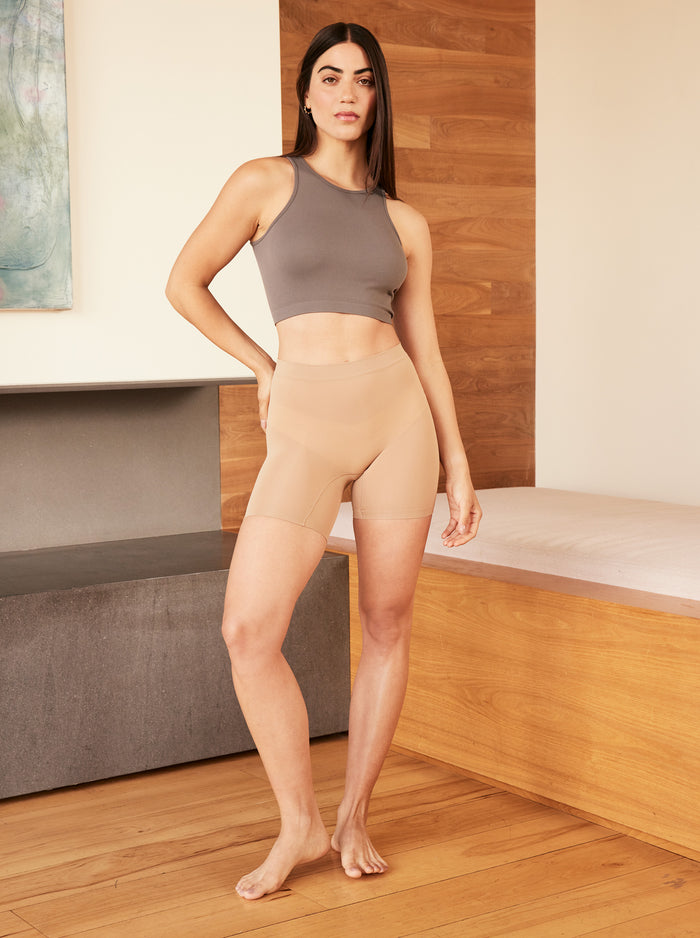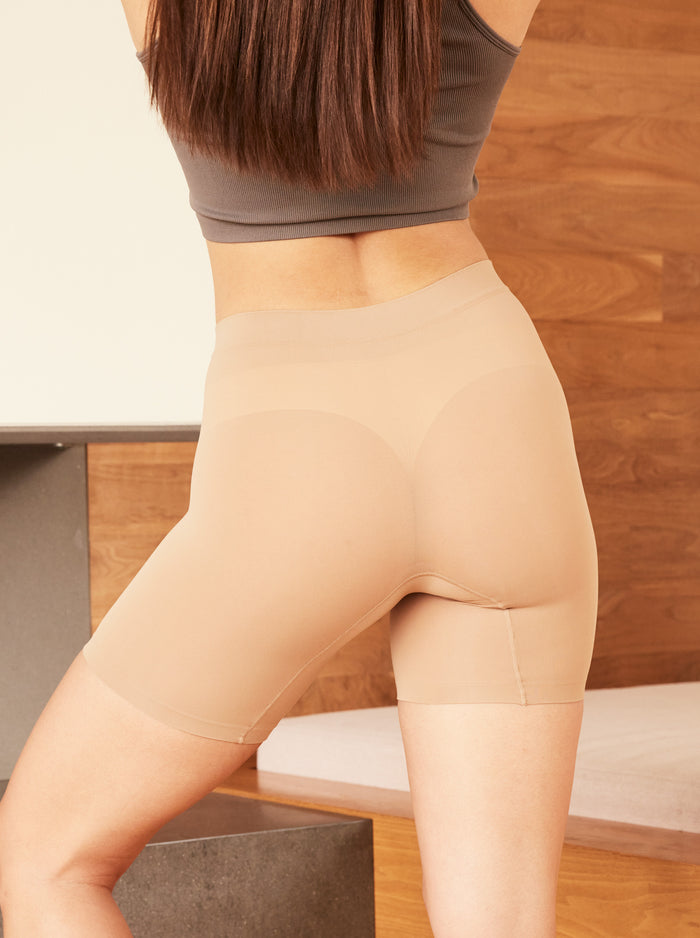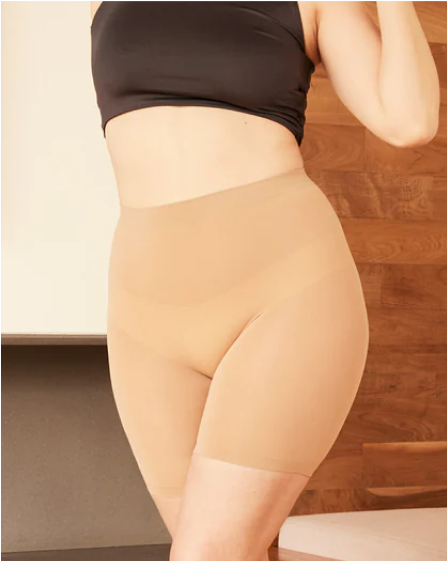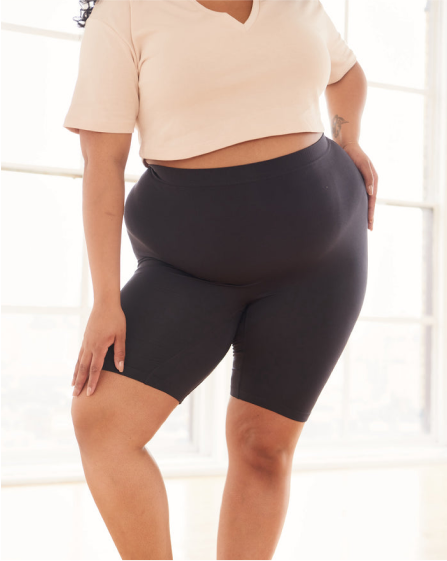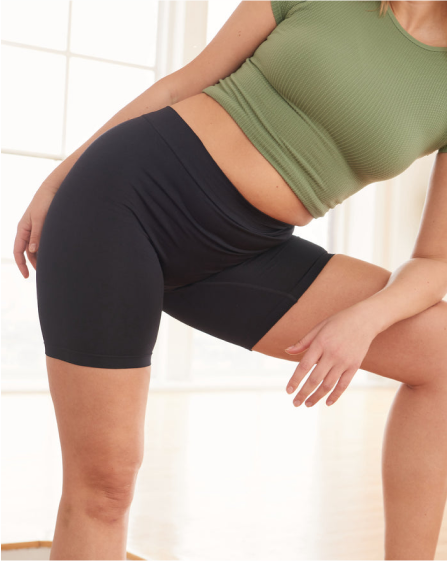Perimenopause can feel like an unpredictable journey, leaving you wondering why you suddenly feel like you're in a sauna every hour. You're not alone. This phase of life brings a range of surprises, with hot flashes being one of the most common (and frustrating) symptoms. Let’s explore what perimenopause is, who experiences it and, most importantly, how to stay cool through those pesky hot flashes.
What is Perimenopause?
Perimenopause is the lead-up to menopause, the grand finale when your ovaries stop releasing eggs and your menstrual periods come to an end. This transition period can last several years, typically starting in your 40s, though it can begin earlier. During this time, your hormone levels — especially estrogen and progesterone — fluctuate wildly, causing a variety of symptoms.
Who Can Experience Perimenopause?
Everyone who has periods will eventually go through perimenopause. It’s as natural as puberty, but instead of awkward teen years, you get a mix of hot flashes, mood swings and a whole new appreciation for air conditioning.
What Does It Feel Like?
Perimenopause can feel like your body is rebelling, with symptoms like irregular periods, hot flashes and night sweats, mood swings, sleep problems and more. Symptoms can last from a few seconds to several minutes and can occur at any time, making them particularly annoying. We're going to focus on one of the most common symptoms, hot flashes and overheating, and what to do about them.

Hot Flashes and Overheating: The Lowdown
Hot flashes are sudden feelings of intense heat that can spread over your body, and are often accompanied by sweating and a rapid heartbeat. They can last from a few seconds to several minutes and can occur at any time — sometimes at the most inopportune moments, which makes them particularly frustrating.
Why Do Hot Flashes Happen?
Hot flashes are caused by changes in your body's temperature regulation, influenced by fluctuating hormone levels. When estrogen levels drop, it affects the hypothalamus, the part of your brain that controls body temperature. This can trigger your body to think it’s overheating, leading to a hot flash.
How to Survive Hot Flashes and Overheating
Now, let’s get to the good stuff: how to survive and thrive during perimenopause, especially when those hot flashes hit.
1. Cooling Underwear
Yes, it’s a thing, and it’s a game-changer. While cooling undies don't stop hot flashes or overheating, they certainly help make them easier to deal with. Our Cooling shorties are made with breathable, moisture-wicking fabrics that help regulate your body temperature and actually cool your body by up to 1 degree. They're a lifesaver during a hot flash, keeping you comfortable and dry.
2. Dress in Layers
Wear light, breathable fabrics and layer your clothing. That way, you can easily peel off a layer when a hot flash strikes. Stick to natural fabrics like cotton and linen, which allow your skin to breathe.

3. Stay Hydrated
Drinking plenty of water can help keep your body cool. Aim for at least eight glasses a day, and keep a water bottle handy, especially during hot weather or when you’re on the go.
4. Cool Your Environment
Keep your living space cool. Use fans, air conditioning or open windows to create a breezy environment. At night, consider a cooling pillow or mattress pad to help manage night sweats. Did you know you can also sleep in your Thigh Society shorties? If you're a hot sleeper, or experience overheating at night, try out The Cooling to get the most comfy sleep of your life.
5. Avoid Triggers
Certain foods and drinks can trigger hot flashes. Common culprits include caffeine, alcohol, spicy foods and hot drinks. Pay attention to what you consume and see if cutting back on these triggers helps reduce your hot flashes. We're big proponents of enjoying the things you love, so it's totally up to you if you choose to cut anything out.
6. Practice Stress Reduction
Stress can exacerbate hot flashes. Incorporate relaxation techniques like yoga, meditation or deep breathing exercises into your daily routine to help manage stress and reduce the frequency of hot flashes.
7. Use Cooling Products
There are plenty of products designed to help you stay cool. Cooling towels, portable fans and even cooling gel packs can provide quick relief when a hot flash hits. Keep them in your bag, at your desk or next to your bed for easy access.
8. Eat a Balanced Diet
A healthy diet can help balance your hormones and reduce the severity of hot flashes. Focus on whole foods like fruits, vegetables, lean proteins and whole grains. Omega-3 fatty acids, found in fish and flaxseed, can also help manage symptoms. Of course, no one is perfect — do what you can and keep enjoying the little things in life.
9. Move Your Body
Regular physical activity can help regulate your body temperature and reduce stress. Find ways to move your body that you love and enjoy, whether it's a sunny walk with your family, swimming at the local pool or hitting the yoga mat.
10. Talk to Your Doctor
If hot flashes are severely impacting your quality of life, don’t hesitate to talk to your healthcare provider. They can offer treatments such as hormone replacement therapy (HRT) or other medications to help manage your symptoms.
11. Embrace the Journey
Perimenopause is a natural part of aging, and while it can be challenging, it’s also an opportunity to focus on self-care and well-being. By understanding what’s happening in your body and adopting strategies to manage hot flashes and other symptoms, you can navigate this phase with confidence and grace.
Remember, you’re not alone. Millions of people are going through the same experience, and sharing your journey can provide support and solidarity. Embrace the changes, stay cool (literally and figuratively) and take care of yourself. You’ve got this!

